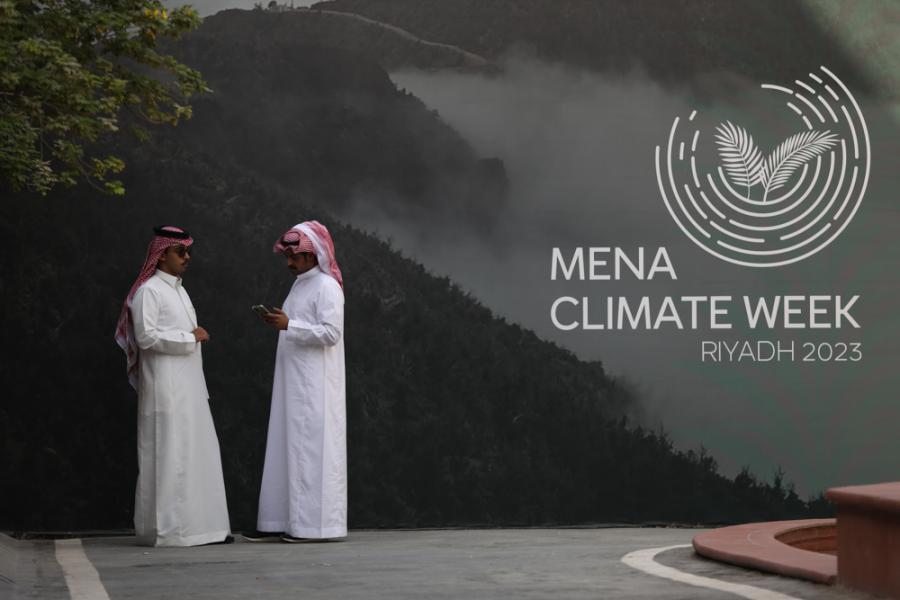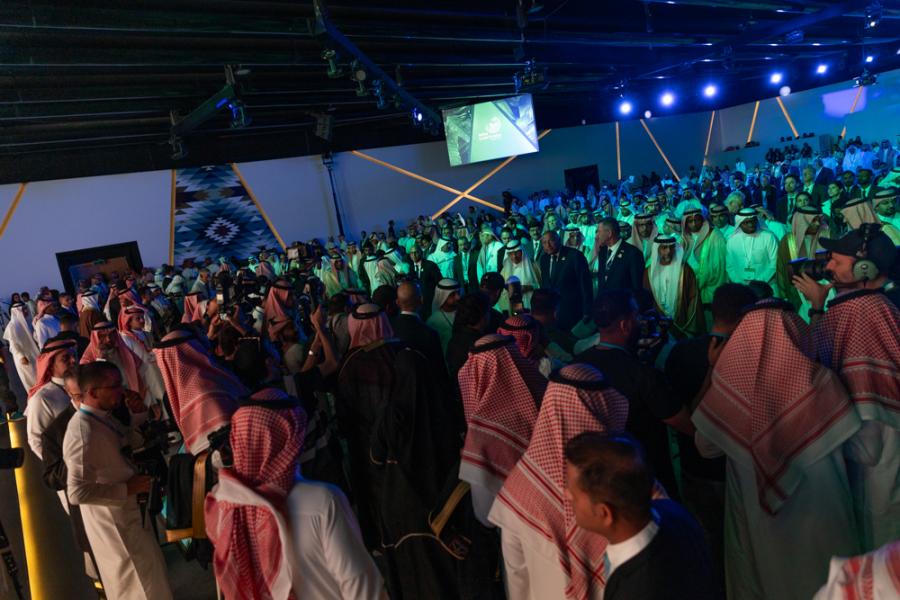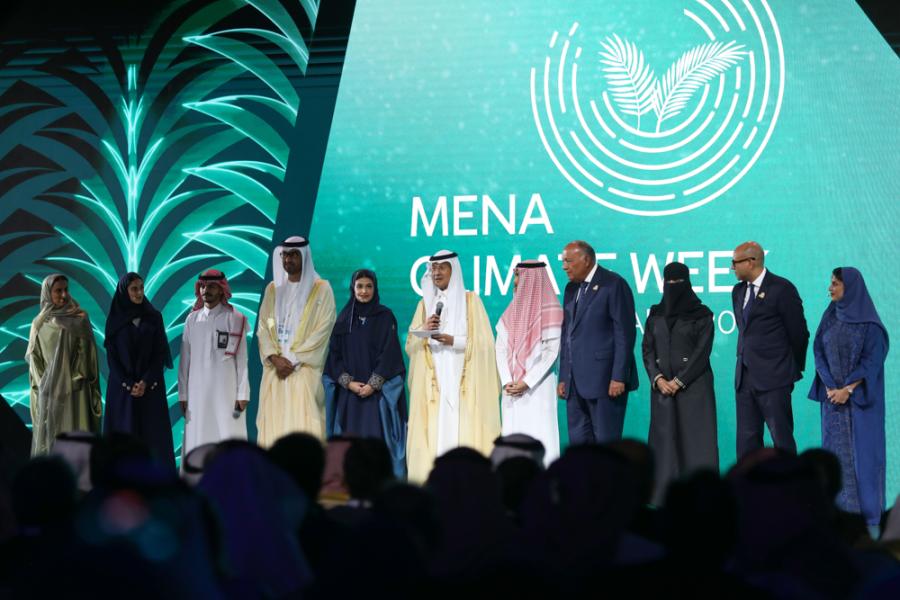10/10/2023

The Middle East and North Africa Climate Week (MENACW) opened on Sunday morning, bringing together policymakers, scientists, and other experts from the region and beyond to consider ways to urgently address climate change ahead of the the 28th session of the Conference of the Parties to the UN Framework Convention on Climate Change (COP 28), which will convene in Dubai, United Arab Emirates (UAE), on 30 November – 12 December 2023. The conference kicked off with an opening ceremony followed by three high-level ministerial sessions on: advancing inclusivity and circularity for just and equitable energy transitions; inclusive finance and economic diversification towards the goals of the Paris Agreement; and moving towards a global goal on adaptation for a 1.5°C world.

In opening the meeting, HRH Prince Abdulaziz bin Salman, Minister of Energy, Saudi Arabia, highlighted the work of the women and men working in the energy sector in the country, noting that the big story of MENACW will be told by the “young cadets” on what we can and should be doing for the future. Sameh Shoukry, Minister of Foreign Affairs, Egypt, emphasized the role of developing nations in leading the climate change intergovernmental process, particularly in achieving the launch of the Loss and Damage Fund under the UNFCCC.
Sultan Al Jaber, COP 28 President-designate and Minister of Industry and Advancing Technologies, UAE, expressed his hope for COP 28 to deliver transformational outcomes on climate action, through a pragmatic and comprehensive climate agenda. Simon Stiell, Executive Secretary, UNFCCC, stressed the importance of economic diversification and leveraging on emerging technology, such as carbon capture and storage and hydrogen, stressing though that they are not substitutes for transitioning away from fossil fuels.

Master of Ceremony Aseel Al Bassam then introduced governmental representatives who presented on Saudi experiences and opportunities for achieving climate ambitions.
Nouf Abdulghani, Senior Renewable Integration Specialist, Ministry of Energy, Saudi Arabia, discussed initiatives to accelerate national renewable energy capacity alongside pursuing achievement of net zero targets. Najla AlSudairy, Head, Policy and Awareness, Oil Sustainability Programme, reported on Saudi Arabia’s prioritization of indirect solutions through material transition in packaging and the buildings and construction industry. Mohammad Ayoub, Climate Policy Specialist, Ministry of Energy, Saudi Arabia, reported on the Saudi Green Initiative.
Throughout the day, participants engaged in Action Hub events, in an open space to discuss pertinent climate change initiatives in the MENA region, including the Saudi Green Initiative, as part of overall efforts to develop vegetation cover and combat desertification. A series of affiliated events were also held, including on fostering partnerships and integrating youth voices into global climate change policymaking, and on boosting region-wide coherence on adaptation.
In the afternoon, participants attended a Gulf Cooperation Council Roundtable as well as a regional Global Stocktake dialogue highlighting enablers and technologies for ambitious and inclusive energy transitions. A number of side events also took place, including on integrated planning for urban resilience in a changing climate, enhanced maritime law enforcement for ocean-based climate action, and opportunities and challenges of Smart Energy Systems integration for a sustainable future.
In the evening, participants attended a reception, featuring a traditional Saudi cultural performance hosted by the Kingdom of Saudi Arabia. (IISD/ENB)
http://www.afedmag.com/english/NewsDetails.aspx?id=7095
